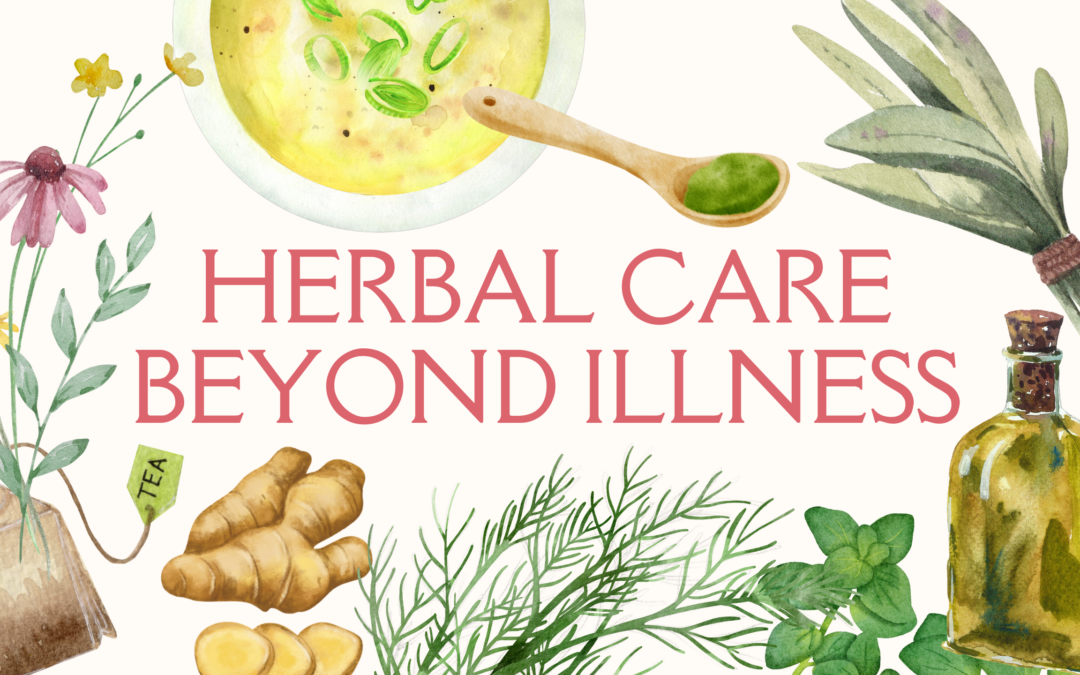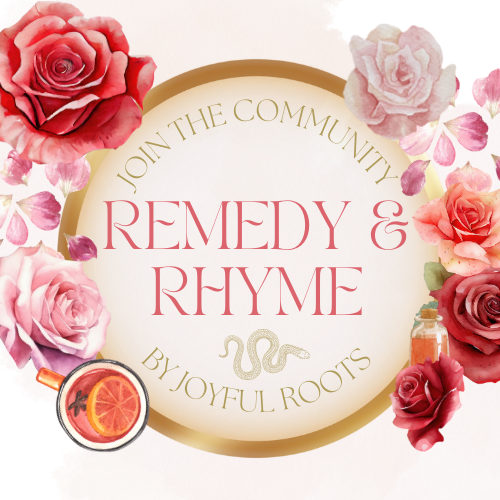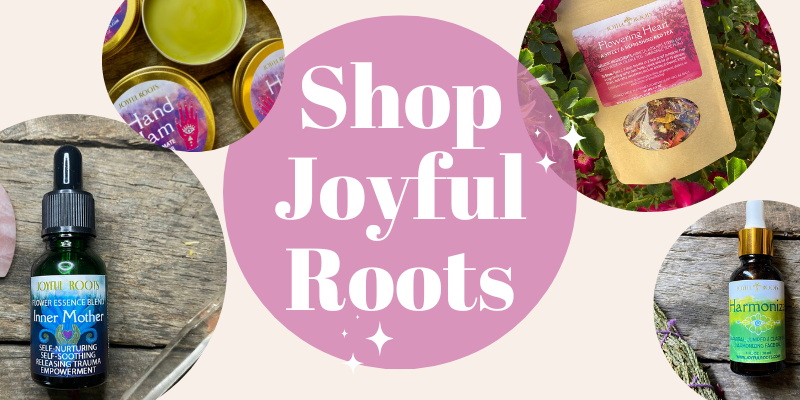Like so many people in our society, I turned to modern medicine when my health began to slip. I found a few answers and met some truly caring doctors—but more often than not, I was met with poking, prodding, and a whole lot of prescription pushing that didn’t help… and sometimes made things worse. Like many folks dealing with chronic, vague, or shifting symptoms, I was often told “I don’t know” or, worse, “It’s just anxiety.”
That frustration eventually led me to an acupuncturist who was also an herbalist. And in just two weeks, she helped me more than years of appointments ever had. Why? Because she had the time and the presence to really listen. She wasn’t rushing to fix or diagnose. Instead, she tuned in and helped me understand what my body needed to regain balance. It wasn’t about quick fixes or masking symptoms—it was about gently realigning the parts of me that had gone off-kilter.
Now, I’m not saying this path is right for everyone. Some people do find modern medicine incredibly helpful—and that’s a good thing. Western medicine is often life-saving in acute situations, and it absolutely has its place. But for so many of us, that path turns into a long road of frustration. We only start seeking alternatives when we feel out of options—when things are bad and the answers have dried up.
But what I want you to know is this: there’s so much power in working before things fall apart—before the body starts throwing up red flags. That’s where herbal care really shines. A proactive, balanced approach is kind of our sweet spot. You don’t have to wait until everything unravels. Staying well in the first place? That’s the real medicine.

The Herbalist’s Approach: Rooted in Relationship
- We don’t just treat symptoms—we look for patterns, root causes, and connections.
- Our work is relational: to the person, the body, the land, and the plants.
- Herbs don’t force the body into submission—they nudge, support, and remind.
One of the things I love most about herbalism is how gentle it can be—and how powerful that gentleness really is when it’s consistent and intentional. Herbs don’t need to knock the body over the head to be effective. In fact, some of the best medicine we have is slow, steady, and nourishing.
Take adaptogens, for example. These are herbs that help the body adapt to stress—whether that stress is emotional, physical, environmental, or all of the above (because let’s be honest, it’s often all of the above). Adaptogens like ashwagandha, tulsi, ginseng, or eleuthero don’t override the body’s stress response. They support it. They help build resilience in the nervous and endocrine systems over time, so your body isn’t constantly living on the edge of burnout.
Then there are nourishing herbal infusions—the kind of deep, mineral-rich teas that feed the body at a cellular level. I’m talking about herbs like nettle, oatstraw, red clover, and linden. These aren’t “take it once and feel a jolt” kinds of herbs. These are slow and steady caretakers. You sip them daily or a few times a week, and over time, you start to notice things: more energy, deeper sleep, fewer anxious spirals, more groundedness. You’re not just treating symptoms—you’re rebuilding your foundation.
These kinds of herbs don’t just help when something goes wrong (although they do that as well). They help keep things from going wrong in the first place. They nourish, buffer, and strengthen the systems we rely on most—especially the nervous system, adrenals, digestion, and immune function. They don’t override your body; they walk beside it.
So imagine if, instead of waiting until we were on the brink, we started building these supportive practices into our lives now. Not as a reaction, but as a rhythm. Not because we’re broken, but because we want to stay well. Herbalists can help guide you through this process.
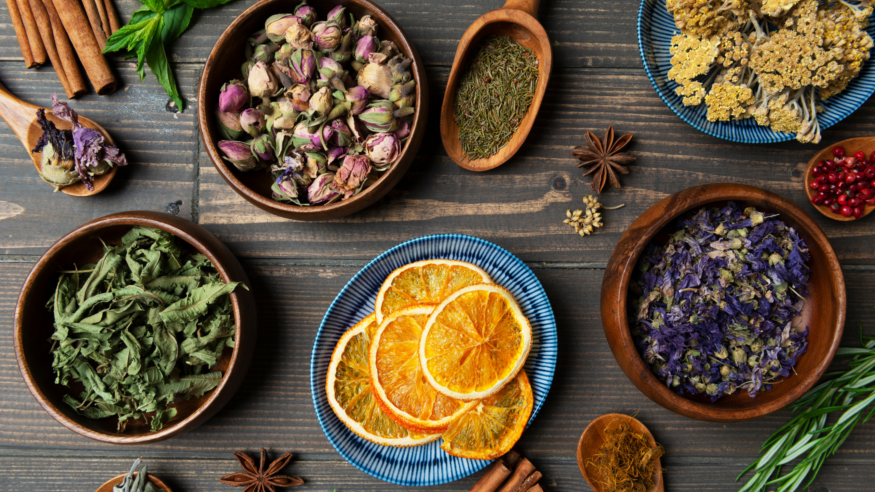
Prevention Isn’t Passive
Prevention isn’t about waiting. It’s active, intentional care. It’s not about waiting around for something to go wrong—it’s about actively tending to the body so it stays resilient. When we nourish ourselves consistently and support balance with herbs, food, rest, and rhythm, we build a stronger foundation. So when life does throw stress our way (and it will), the body is less likely to get knocked completely off course.
In contrast, the Western medical model often doesn’t step in until something has already tipped into dysfunction. Your labs can be just barely in the “normal” range, and yet you feel exhausted, anxious, inflamed, or off—but until you’re out of range and in a diagnosable disease state, there’s often little they can do. Herbalism asks a different question: What if we started caring for the body before it reached that tipping point? What if wellness wasn’t just the absence of disease, but a state of real vitality?
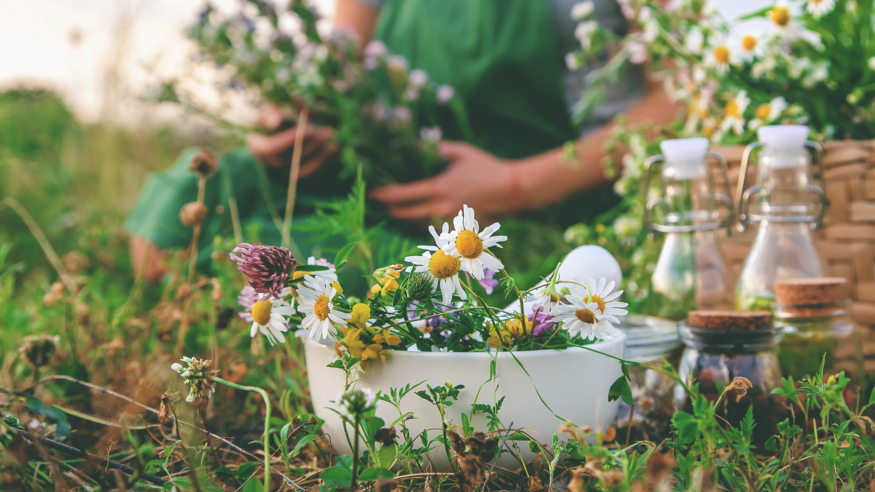
Herbalists Are Community Allies
So where do herbalists fit into the bigger picture of health and community care? We’re not just waiting on the sidelines for someone to get sick—we’re showing up in all kinds of spaces, offering support in ways that feel personal, accessible, and rooted in relationship. We can be at the clinics, markets, online spaces, or even kitchen table conversations. Here are just a few ways herbalists can make a difference:
- Before illness ever shows up, herbalists can help guide and support you through:
- seasonal transitions and immune support
- stress management and sleep care
- nervous system nourishment
- hormone balance and cycle support
- incorporating herbs into daily routines
- holistic care for family and loved ones
- personalized, one-on-one consultations tailored to your needs
- etc.
- During illness, herbalists can:
- walk alongside conventional care, offering complementary support
- help ease symptoms naturally, such as with digestive or respiratory support
- offer herbal remedies to support the immune system and promote recovery
- guide you through emotional or mental stress during illness
- provide alternatives when appropriate, especially for chronic conditions or when conventional options aren’t working
- After illness, herbalists can support you in:
- rebuilding strength and vitality
- nourishing depleted systems (like digestion, adrenals, or immunity)
- restoring balance to the nervous system
- gently supporting emotional and spiritual recovery
- helping you reconnect with your body and sense of self
This is a reminder to not wait until you’re desperate. Reach out when you feel the nudge, the whisper, the curiosity. Your body doesn’t have to scream to deserve support. 💚
With ever-growing blessings,
Kimberly

